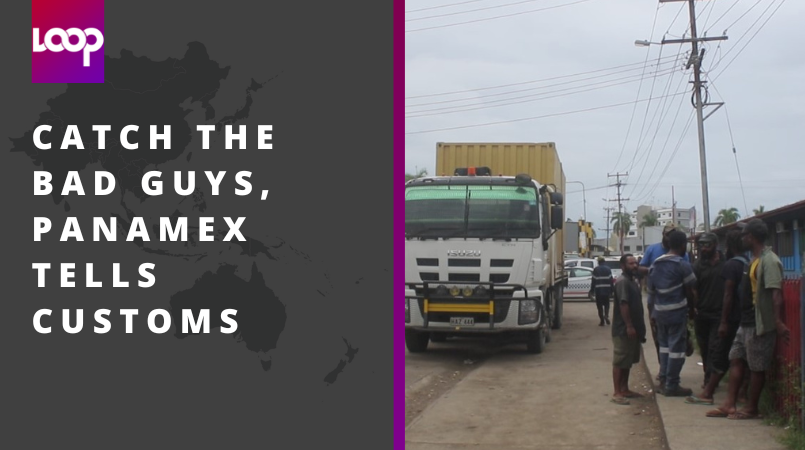
Stop beating up on the good guys and catch the bad guys.
Panamex Pacific (PNG) general manager, Erich Illemann, said this when a 20-foot container of fake Waswas soap was intercepted by Lae police on the night of Thursday, March 16th.
It is believed the fake products were bound for Mt Hagen, in Western Highlands Province.
Panamex invited PNG Customs officers to be part of the operation on Friday morning. However, Customs advised Panamex that since the container had left the wharf, it is now out of their jurisdiction.
“There’s counterfeit product here, it’s not being caught by Customs. That’s why I said, ‘Stop beating up on the good guys and catch the bad guys’,” Illemann said.
“We have been supporting PNG made for the last 20 years.
“We’ve invested money in our manufacture, we employ lots of people and not only that, we contribute to society through our sponsorships, support of education, our support of community groups, et cetera.
“But it’s very easy for them to tackle businesses that are transparent and are out in the open. What about these guys that are doing the wrong thing, importing counterfeit product?”
Illemann said local jobs are at risk when counterfeit products enter PNG’s shores, as in the case of Waswas soap, which is made by Papua New Guineans, in Papua New Guinea.
“When Waswas is imported, and it’s counterfeit, it replaces the jobs here in Papua New Guinea.
“So what I want to say is, why aren’t these people being pursued? Why are we being pursued unfairly?”
The general manager drew attention to the 20 percent duty on soap noodles and the 5-year back charge, saying when import tax is being applied on raw materials, “you will kill manufacture in PNG because our cost of production are much higher than outside of PNG”.
“We have some of the worst power supply in the world,” he continued.
“That costs us extra money. And there are many other instances that raise our cost in PNG. So if you’re going to charge the same import tariff on a raw material as the finished goods, then people will stop manufacturing in PNG. They will import because the factories overseas are much bigger and they can make the product cheaper.”
